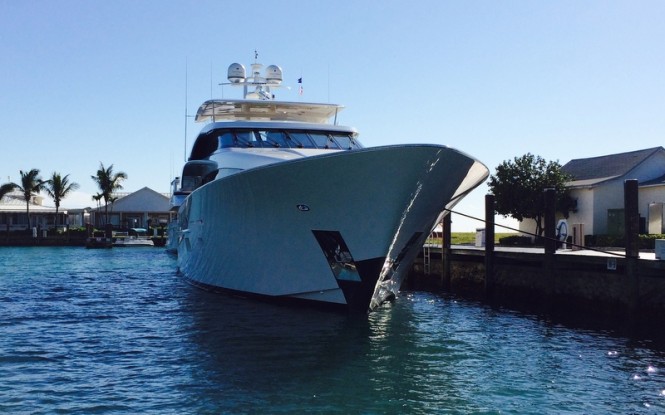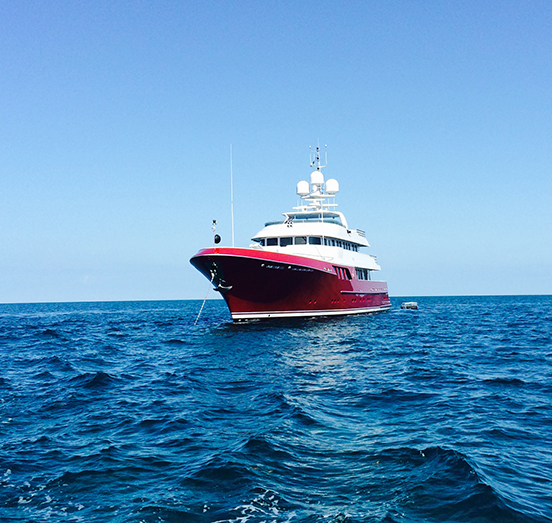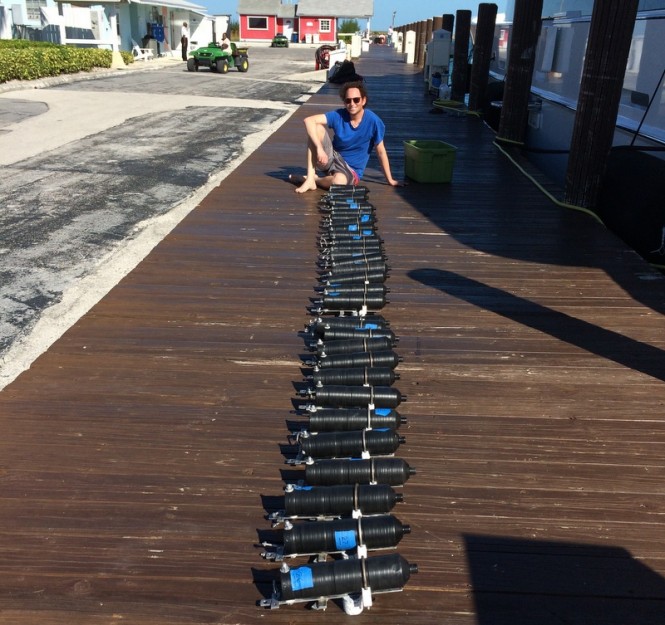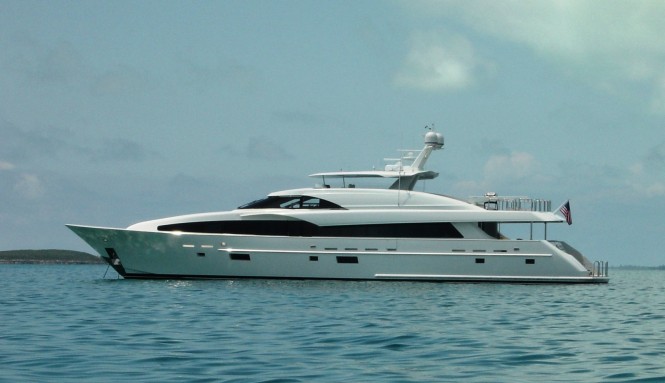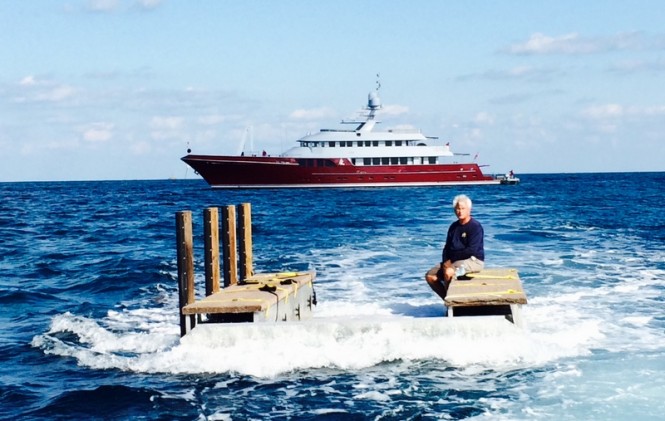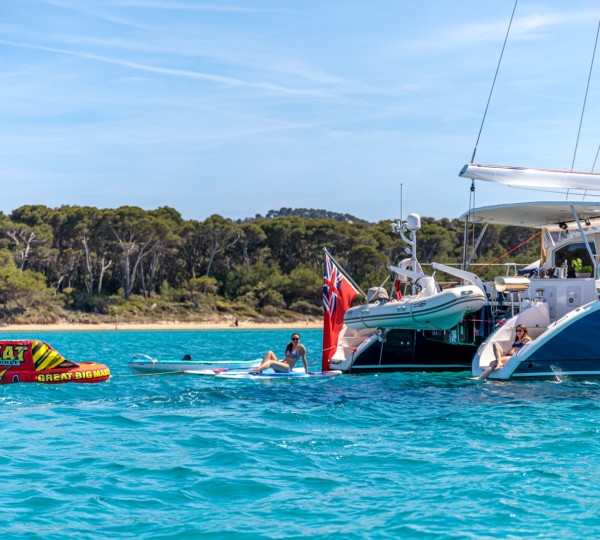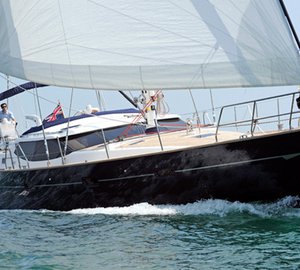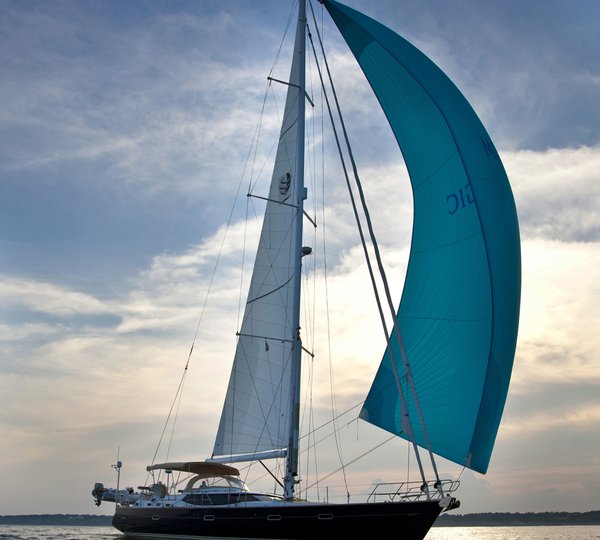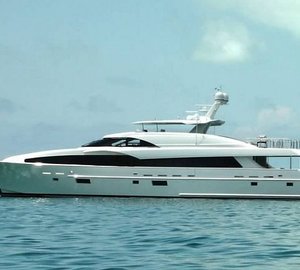Last month saw The International SeaKeepers Society return from a successful shark tagging expedition, supporting the UM Rosenstiel School of Marine and Atmospheric Science, Marine Conservation Program, as well as National Geographic. The shark tagging took place at Tiger Beach, a beautiful Bahamas yacht holiday location, onboard DISCOVERY Yachts 125’ Northcoast motor yacht Fugitive, out of West Palm Beach in Florida, and the 150’ Cheoy Lee super yacht Qing, out of Fort Lauderdale, Florida.
Dr. Neil Hammerschlag and his research team, along with SeaKeepers staff, guests and crews of Qing and Fugitive, and National Geographic staff, tagged ten tiger sharks during the four days at Tiger Beach on a custom-made floating platform designed and built by Florida Biodiversity Institute. Of the ten sharks, three were male, providing valuable and exciting new data for what was thought to be an only female-populated area. Ultrasounds were conducted on the seven female sharks that were captured, and several were found to be pregnant. In addition to acoustic tagging and ultrasounds, researchers also attached several satellite tags, recorded morphological measurements, and took blood samples and fin clippings from the sharks, which will help scientists better understand the behavior and health of tiger sharks in The Bahamas.
Part of the expedition was also devoted to collecting and downloading acoustic receiver data from the Tiger Beach area. Researchers are able to track tagged sharks through hydrophone receivers that were mounted on the seafloor in October of 2013. Every six months, receiver data is downloaded. Since October, 20,000 detections by sharks on the hydrophones were recorded. These data give researchers insight to the behavior and habitat use of tiger sharks in the Bahamas, and how these patterns may be related to reproduction, diet and health as well as the potential impacts by tourism at Tiger Beach.
National Geographic Crittercams were attached to three tiger sharks during this expedition and several hours of footage were recovered. Crittercam is a research tool designed to be safely worn by animals, combining video and audio recording with collection of environmental data. Crittercams allow scientists to study animal behavior without interference by a human observer, and are designed to release from the animal after a set time.
The International SeaKeepers Society is working with the UM Rosenstiel School to coordinate expeditions to Tiger Beach every six months. By obtaining data regularly, researchers will continue to increase our knowledge about these important apex predators.
SeaKeepers’ DISCOVERY Yachts Program joins world-renowned scientists with world-class yacht owners to further scientific research. Yacht owners dedicate their yacht and its abilities to a scientist-led research expedition, in which owners and crew often participate. Previous expeditions include coral reef research in the Dry Tortugas, drifter deployments off the Channel Islands, genome-scale sequencing in Bimini, tiger shark tagging in the Bahamas, and harbor porpoise research in San Francisco.

